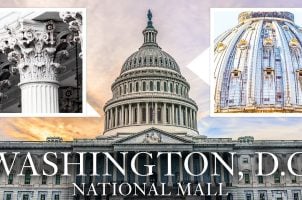South Carolina Giving Casino, Sports Betting Legislation Another Go
Posted on: December 12, 2022, 02:49h.
Last updated on: January 3, 2023, 05:31h.
South Carolina lawmakers will have another chance to consider gaming legislation after State. Rep. J. Todd Rutherford (D-Richland) recently prefiled a casino and sports betting bill.

H 3095 Joint Resolution is a constitutional amendment that could set the stage for casino gaming and sports wagering to eventually go live in the state. Legislation to legalize sports betting in South Carolina made it out of the House last year but failed to gain traction in the Senate. There’s optimism that with Rutherford prefiling the amendment prior to the start of the 2023 legislative session, policymakers will have more time to consider the measure, thus enhancing its odds of success.
Rutherford is the House Minority leader, which could give the proposed amendment some added gravitas, as could bipartisan support, which is expected. Last year, Rutherford co-sponsored House Bill 5277 (HB 5277) with Rep. William Herbkersman (R), which would have allowed South Carolina residents to fund sports wagering accounts with cryptocurrency.
Inside the Rutherford Amendment
In addition to sports wagering, Rutherford’s amendment could pave the way for horse racing and casino gaming in South Carolina, both of which have previously encountered opposition in the state. Bipartisan pari-mutuel legislation was proposed there last year, but swiftly perished.
By adding Section 16 so as to provide that the General Assembly by law, in specified areas of the state, may provide for the conduct of gambling and gaming on which bets are made to include pari-mutuel betting on horse racing, sports betting on professional sports, casino activities, such as card and dice games where the skill of the player is involved in the outcome and games of chance with the use of electronic devices or gaming tables,” according to the proposed amendment.
Rutherford’s amendment explicitly mentions betting on professional sports and makes no mention of college athletics, implying the latter could be off the table. If passed in that form, that could be a drag, because South Carolina has no professional sports teams. Sports fans in the state are devoted to Clemson and the University of South Carolina, however.
The amendment also doesn’t mention taxes, but under the aforementioned HB 5277, South Carolina sports betting revenue would have been taxed at 10% of adjusted gross — mostly in line with the national average — and require operators to pay a $500K annual fee.
South Carolina Has Reasons to Move Forward on Sports Betting
There are advantages to South Carolina moving swiftly on sports betting legislation, assuming that’s the path lawmakers choose. Namely, neighboring North Carolina only permits the activity at tribal casinos, while it’s not yet legal in bordering Georgia.
Of the states in close proximity to South Carolina, only Tennessee currently offers regulated mobile sports wagering, and there’s no related legislation in the works in Alabama or Georgia.
South Carolina is home to 5.19 million people and the population there is growing, indicating it could be a compelling market for sportsbook operators.
Related News Articles
Washington, DC Councilmember Proposes Competitive Sports Betting Bill
Texas Sports Betting Supported by Key Republican
San Antonio Spurs Owner Peter Holt Supports Texas Sports Betting
Brazilian Soccer Clubs Attempt to Block Sports Betting Ad Ban
Most Popular
Mirage Las Vegas Demolition to Start Next Week, Atrium a Goner
Where All the Mirage Relics Will Go
Most Commented
-
Bally’s Facing Five Months of Daily Demolition for Chicago Casino
— June 18, 2024 — 12 Comments
















No comments yet